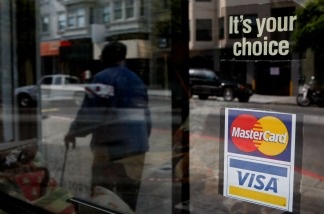
LA city officials will send notification about collecting and paying city hotel taxes to people advertising rentals on Airbnb and similar sites. Other cities, including San Francisco, have begun to enforce hotel taxes for Airbnb rentals with compliance from Airbnb and local hosts.; Credit: Justin Sullivan/Getty Images
Airbnb hosts in Los Angeles will soon receive online warnings about tax payment for short term leases. City officials will send notification about collecting and paying city hotel taxes to people advertising rentals on Airbnb and similar sites.
Although sharing-economy rentals are technically supposed to charge and pay some of the same taxes for hotels, enforcing and collecting tax code has proven difficult: as Airbnb and other sites make finding exact addresses more difficult, city officials have a harder time tracking down the people renting properties. As Airbnb becomes more popular and legitimized as a reliable resource for travelers, more people have signed up as hosts, inspiring complaints about neighborhood disruption and property owners who evict tenants to turn apartment buildings into de facto hotels. Other cities, including San Francisco, have begun to enforce hotel taxes for Airbnb rentals with compliance from Airbnb and local hosts.
How should L.A. proceed in its relationship with Airbnb and other short term rental sites? Should L.A. hosts collect and pay hotel taxes? Should there be a crackdown on properties turned into pseudo-hotels?
Guests:
David Owen, regional head of public policy at Airbnb
Paul Krekorian, LA City Councilmember for the 2nd District, including Studio City, North Hollywood, and Van Nuys



























